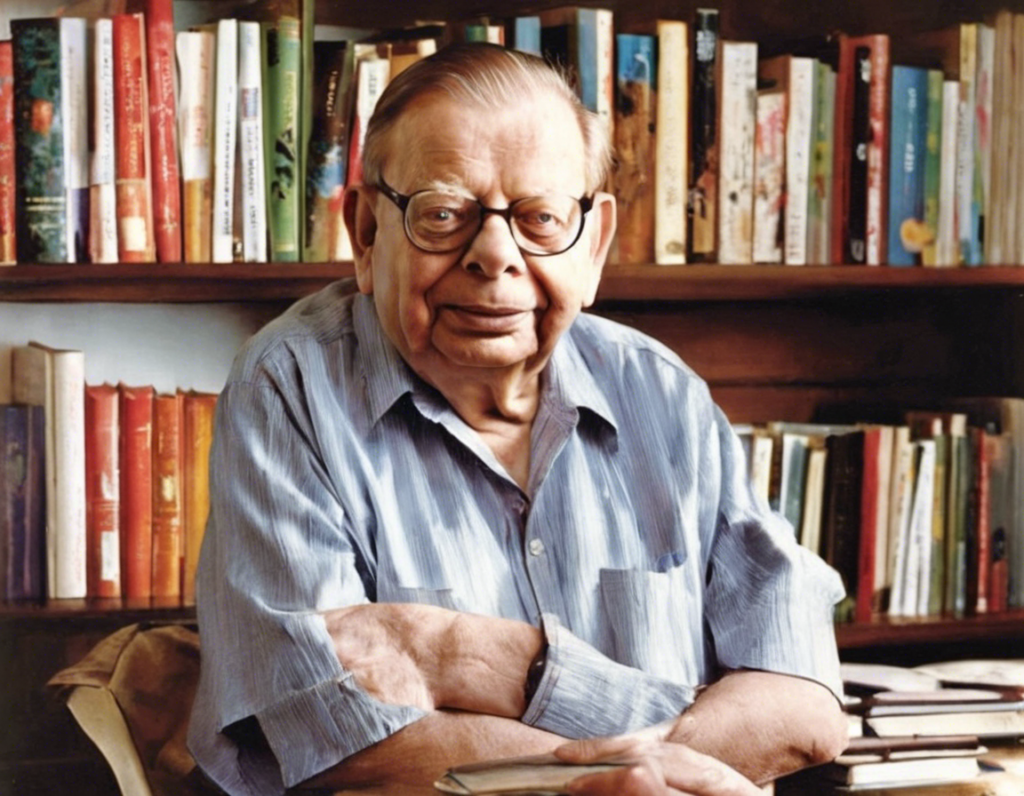
Introduction
Ruskin Bond, a name that resonates with literary enthusiasts all over the world, is a celebrated Indian author known for his captivating storytelling and poignant narratives that transport readers to the charming landscapes of rural India. With a career spanning over six decades, Bond has penned numerous novels, short stories, essays, and children’s books, establishing himself as one of the most beloved and prolific writers in the country. Through his works, Bond has beautifully captured the essence of Indian life, its simplicity, its complexities, and its vibrant culture, earning him a dedicated global following.
Early Life and Background
Ruskin Bond was born on May 19, 1934, in Kasauli, a picturesque town in present-day Himachal Pradesh, India. His upbringing was marked by various challenges and upheavals, including the separation of his parents at a young age, which profoundly influenced his writing and shaped his worldview. Bond spent his formative years in Jamnagar, Dehradun, and Shimla, where he found solace in the lap of nature and developed a deep connection with the mountains, forests, and rivers that would later feature prominently in his stories.
Literary Career
Bond’s literary journey began in the 1950s when he published his first novel, “The Room on the Roof,” at the young age of 17. The novel, which won the John Llewellyn Rhys Prize, established Bond as a promising young writer with a unique voice and a keen eye for detail. Over the years, Bond went on to write several acclaimed works, including “Vagrants in the Valley,” “A Flight of Pigeons,” “Rusty the Boy from the Hills,” and “The Blue Umbrella,” among many others.
One of the hallmarks of Bond’s writing is his ability to evoke a strong sense of place, bringing to life the sights, sounds, and smells of rural India with remarkable clarity. His narratives often revolve around the lives of ordinary people – children, villagers, and animals – navigating the complexities of everyday existence with resilience, humor, and compassion. Through his stories, Bond sheds light on universal themes such as love, loss, friendship, and the beauty of simplicity, inviting readers to reflect on the essential truths of life.
Themes and Style
Bond’s writing is characterized by its simplicity, elegance, and evocative imagery, which create a vivid and immersive reading experience. His prose is marked by a gentle lyricism and a deep sense of nostalgia, harking back to a vanishing world of innocence and wonder. Themes of nature, childhood, friendship, and the supernatural recur frequently in Bond’s works, infusing them with a timeless charm and a sense of magic that lingers long after the final page is turned.
Through his narratives, Bond celebrates the beauty of the natural world, depicting it as a source of solace, inspiration, and wisdom. Whether describing the whispering pines of Mussoorie, the playful monkeys of Shimla, or the monsoon-drenched streets of Dehradun, Bond’s writing brims with a deep reverence for the environment and its inhabitants, underscoring the interconnectedness of all living beings.
Legacy and Influence
Ruskin Bond’s contributions to Indian literature have been widely acclaimed, earning him numerous awards and accolades, including the Sahitya Akademi Award, the Padma Bhushan, and the Padma Shri. His works have been translated into several languages and adapted for film, television, and stage, reaching a diverse audience across the globe. Bond’s enduring appeal lies in his ability to capture the essence of India – its landscapes, its people, and its myriad cultural traditions – with sensitivity, warmth, and authenticity.
Bond’s influence extends far beyond the realm of literature, inspiring generations of readers, writers, and storytellers to discover the magic of storytelling and the power of imagination. His commitment to preserving the natural world, fostering a love of reading, and championing the cause of children’s literature has left an indelible mark on the literary landscape of India and continues to inspire new voices to chart their own creative paths.
Conclusion
In conclusion, Ruskin Bond stands as a literary luminary whose storytelling prowess, keen observations, and profound understanding of human nature have endeared him to readers of all ages. Through his timeless tales of love, loss, friendship, and the wonders of the natural world, Bond has carved a niche for himself as a master storyteller whose narratives resonate with universal truths and enduring emotions. For those who have yet to discover the enchanting world of Ruskin Bond, delving into his works is a journey of wonder, delight, and introspection, offering a glimpse into the heart and soul of India through the eyes of a gifted wordsmith.
Frequently Asked Questions (FAQs)
1. What are some of Ruskin Bond’s most famous works?
– The Room on the Roof
– The Blue Umbrella
– Rusty the Boy from the Hills
– A Flight of Pigeons
2. What sets Ruskin Bond’s writing style apart from other authors?
– Bond’s writing is characterized by its simplicity, evocative imagery, and lyrical quality, which create a vivid and immersive reading experience for readers.
3. How has Ruskin Bond’s upbringing influenced his writing?
– Bond’s challenging childhood and deep connection with nature have had a profound impact on his writing, shaping his themes, characters, and storytelling approach.
4. Why is Ruskin Bond considered a significant figure in Indian literature?
– Bond’s contributions to Indian literature, his portrayal of rural life, his evocative descriptions of nature, and his universal themes have earned him acclaim as a prominent literary figure in India.
5. What is the best way to start reading Ruskin Bond for someone new to his works?
– A good starting point would be with one of his most popular novels like “The Room on the Roof” or his short story collection “The Night Train at Deoli and Other Stories,” to get a taste of his storytelling prowess.